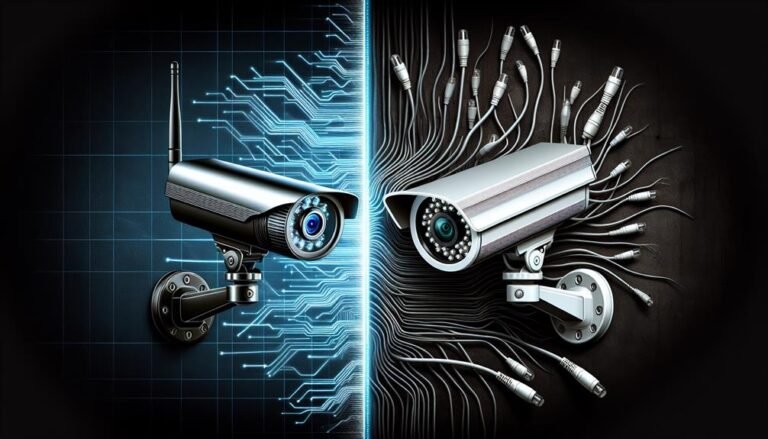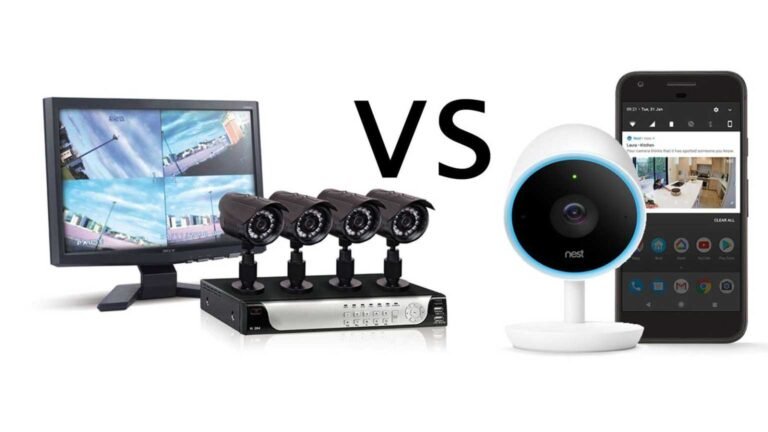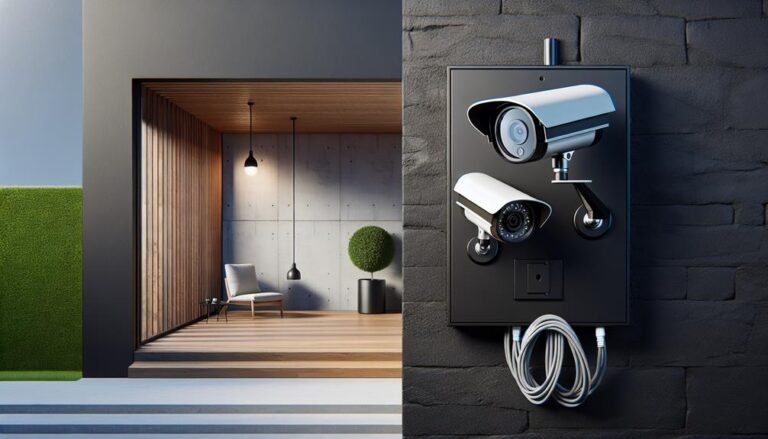Wireless OR Wired CCTV Cameras? Know Pros and Cons

Wired CCTV cameras are a staple in security systems, known for their reliability and robust performance in surveillance applications. Unlike their wireless counterparts, wired CCTV cameras use physical cables to transmit video signals and power, providing a stable and continuous connection that is less susceptible to interference and signal loss.
The primary advantage of wired CCTV cameras is their consistent and high-quality video transmission. Because the signal is transmitted via a physical cable, typically coaxial or Ethernet, there is minimal risk of interference from other wireless devices. This results in clearer and more reliable footage, which is crucial for identifying details such as faces, license plates, and other critical visual information. Moreover, wired systems are less likely to experience signal degradation over long distances, making them suitable for large properties or extensive surveillance networks.
Installation of wired CCTV cameras involves running cables from each camera to a central recording device, such as a digital video recorder (DVR) or network video recorder (NVR). While this process can be more labor-intensive and costly compared to setting up wireless systems, the long-term benefits often outweigh these initial challenges. The fixed nature of the installation also means that the cameras are generally more secure and tamper-resistant, as the physical connections are less easily disrupted.
Wired CCTV cameras are versatile and can be used in various environments, from residential properties to commercial and industrial sites. In homes, they provide reliable security for entrances, driveways, and perimeters. In commercial settings, they help monitor high-traffic areas, prevent theft, and ensure employee safety. Industrial sites benefit from wired CCTV systems by overseeing large areas, monitoring machinery, and enhancing safety protocols.
Additionally, many wired CCTV systems support advanced features such as high-definition video, night vision, and motion detection. These capabilities enhance the effectiveness of surveillance, allowing for comprehensive monitoring in various lighting and environmental conditions. Integrating these cameras with other security systems, like alarms and access controls, can provide a holistic approach to property security.
Wired CCTV cameras offer a dependable and high-quality solution for surveillance needs. Their consistent video transmission, resistance to interference, and ability to support advanced features make them an ideal choice for a wide range of security applications. Despite the higher initial installation effort, the long-term reliability and performance of wired CCTV systems make them a valuable investment for ensuring safety and security in various environments.


